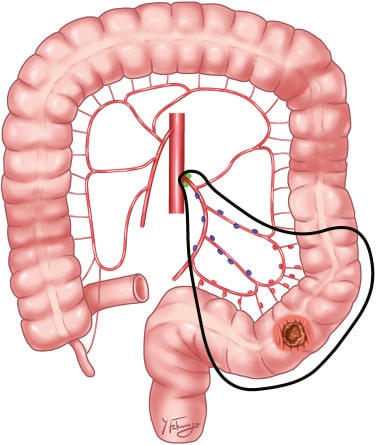Colorectal cancer is one of the most common cancers globally; it is a malignant tumor that starts in either the rectum or colon. Digestive system contains the colon and rectum which processes food for energy and eliminates waste from the body.
For instance, this kind of cancer usually begins as a polyp, which can be described as a small growth occurring on the inside lining of the colon or rectum and it can grow into cancer over some time.
Colorectal Cancer Surgery Types
When it comes to treating colorectal cancer, surgery is often a critical component. Several colorectal cancer surgery types are used depending on the cancer’s location, stage, and other health factors. The primary goal of these surgeries is to remove the cancerous tissues and, in some cases, the surrounding lymph nodes.
Colectomy
In many cases, colectomy is chosen as a treatment option for colorectal cancer when either part or all of the colon is removed. Some types of colectomies include:
- Partial Colectomy: Only the tumor is excised along with a small amount of normal tissue.
- Total Colectomy: The entire colon may have to be removed if there is extensive spread.
Such surgeries are usually done in less invasive ways such as laparoscopic surgery which uses much smaller cuts and therefore results in quicker recovery than open surgery.
Proctectomy
For cancers located in the rectum, proctectomy might be recommended. This involves removing part or all of your rectum. Types include:
- Low Anterior Resection (LAR): Removing upper portion of rectum with remaining attached to it colon.
- Abdominoperineal Resection (APR): When both anus and rectum are taken out this operation necessitates permanent colostomy where waste goes out through a hole created in the abdomen called stoma.
With these surgeries, every effort is made to remove tumors while preserving normal function as much as possible.
Laparoscopic Surgery
Colorectal cancer treatments have increasingly become popular for laparoscopic surgeries. The thin tube with a camera and light known as the laparoscope is employed to enable viewing and performing of operations on internal body organs through small cuts.
Pain after surgery is reduced, patients’ hospital stays are shortened and they return to normal life quicker if this method is applied. Laparoscopic technique can be used in partial/total colectomy or some types of proctectomy.
Postoperative Care and Recovery
Following colorectal cancer surgery, most patients typically need some amount of time to recover. Post-operative care includes pain management, prevention of complications and gradual restoration of normal bowel function. They may have special dietary requirements as they gradually reintroduce solid food.
Encouraging physical activity helps restore strength; it also reduces the chance for any other medical issues like blood clots arising during the process. Similarly, follow-up visits are important to determine if the cancer has returned or any current health problems that need attention.
Potential Complications
Colorectal cancer surgery just like any other major operation comes with certain risks. Potential complications related to it are:
- Infection: At the surgical site or within the abdomen.
- Bleeding: Excessive bleeding at or after surgery occurs.
- Bowel Obstruction: The formation of scar tissues resulting from surgeries may block intestines.
- Anastomotic Leak: It means leakage at the site where the colon and rectum join together again after surgery.
Close monitoring is required in managing such complications while in some cases additional medical interventions might be necessary too.
Innovations in Colorectal Cancer Surgery
There is an improvement in the results that colorectal cancer patients can regain through surgical procedures from superior advancements in technology and surgical techniques. Here are some of the most recent:
- Robotic Surgery: This results in reduced postoperative pain, faster recovery and greater accuracy.
- The Enhanced Recovery After Surgery (ERAS) Protocols: Minimize the impact of surgery on the body by taking care of nutrition and introducing pain management services.
- Intraoperative Radiation Therapy (IORT): It involves targeted radiation during surgery that eliminates any remaining cancer cells, thus reducing chances of reoccurrence.
These developments are helping to improve safety and efficacy in colorectal cancer surgery.
Conclusion
Colorectal surgery is one vital treatment option that can excellently enhance outcomes for patients. A good knowledge about different kinds of surgeries, complications that could rise as well as newest technological advances in surgical skills makes patient’s family informed when making decisions regarding their health care.
Attentiveness will help patients choose proper treatments which they will go through with confidence as they imagine a future full of health.




